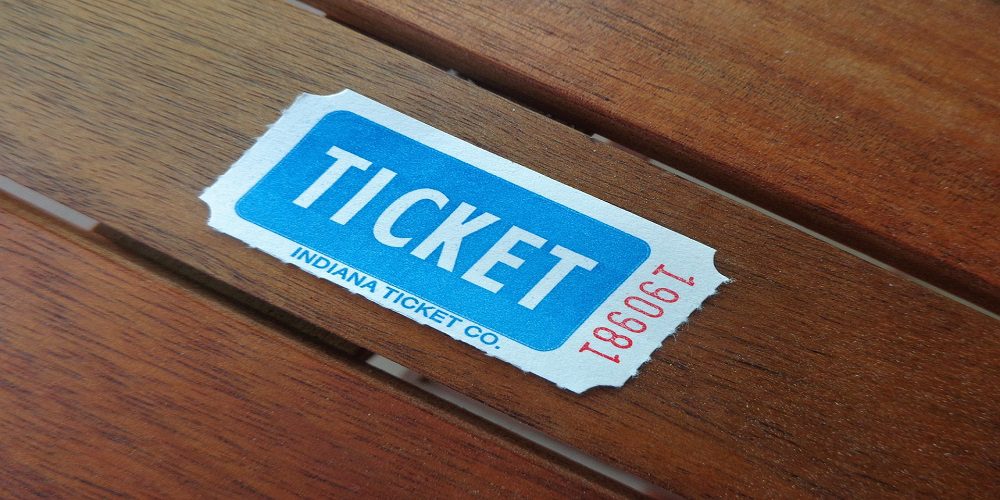Welcome to the future of event access! In a world where everything seems to be going digital, it’s no surprise that even our beloved tickets are getting a makeover. Say hello to NFT tickets, the latest craze that is revolutionizing how we attend events. Whether you’re a die-hard fan eagerly awaiting your favorite artist’s concert or an avid sports enthusiast itching for front-row seats, these non-fungible tokens are changing the game like never before.
Introduction
NFTs, or non-fungible tokens, have been making headlines in recent years due to their growing popularity and widespread adoption. But what exactly are NFTs, and why are they becoming the go-to choice for event access?
To understand NFT tickets, we must first understand what makes them different from traditional event tickets. Traditional event tickets are physical items that grant entry to a specific event. They can be easily duplicated or counterfeited, leading to issues such as ticket scalping and fraudulent sales.
On the other hand, NFT tickets are unique digital assets that use blockchain technology to verify authenticity and ownership. Each NFT has a specific digital signature that cannot be replicated, making it impossible to counterfeit. This means that only the rightful owner of an NFT ticket can gain access to the event, eliminating issues of fraud and scalping.
What is an NFT ticket?
An NFT (non-fungible token) ticket is a digital form of event ticket that is unique, secure, and verifiable using blockchain technology. Just like physical tickets, NFT tickets grant access to events such as concerts, sports games, festivals, and conferences. However, unlike traditional paper or electronic tickets, NFT tickets are one-of-a-kind digital assets that cannot be duplicated or counterfeited.
The concept of NFTs has gained widespread attention in recent years due to the rise of cryptocurrencies and the increasing use of blockchain technology. NFTs were first introduced in 2017 with the launch of CryptoKitties, a game where players could buy and trade unique digital cats using the Ethereum blockchain. Since then, the use of NFTs has expanded to various industries, including art, collectibles, and now event access.
Benefits of using NFT tickets for events
Using NFT tickets for events is a revolutionary concept that is rapidly gaining popularity in the event industry. NFT (Non-Fungible Token) refers to a unique digital asset that represents ownership of an item or access to a particular service. These digital tokens are built on blockchain technology, making them secure and tamper-proof.
But what exactly are the benefits of using NFT tickets for events? In this section, we will delve into the various advantages that organizers and attendees can reap from this innovative ticketing system.
1. Enhanced Security: One of the primary benefits of using NFT tickets is enhanced security. With traditional paper or e-tickets, there is always a risk of fraud or duplication. However, since each NFT ticket is unique and registered on the blockchain network, it cannot be duplicated or counterfeited. This ensures that only genuine ticket holders have access to the event and eliminates any chances of fraudulent activities.
2. Scalability: Another significant benefit of using NFT tickets for events is scalability. Organizers can easily manage large-scale events with thousands of attendees without worrying about capacity limits or ticket distribution logistics. With traditional tickets, there is always a risk of overselling, but with NFTs, each token represents one entry, ensuring accurate tracking and management.
3. Customization: Unlike standard tickets that have limited customization options, organizers can personalize their NFT tickets as per their event theme or branding requirements. They can add unique visuals or even include interactive features like animations or videos to make the ticketing experience more engaging for attendees.
4. Traceability: NFT tickets are registered on a blockchain network, making them traceable at all times. This means that organizers can track the movement of each ticket and have a real-time view of how many tickets have been sold, who has purchased them, and whether or not they have been transferred to someone else.
5. Secondary Market Opportunities: NFT tickets open up opportunities for a secondary market where attendees can resell their tickets if they cannot attend the event. This creates a win-win situation for both parties, as the original buyer gets their money back and someone else gets the opportunity to attend the event.
6. Green Solution: With NFT tickets, there is no need for physical printing or paper waste, making it an environmentally friendly option. This also eliminates the hassle of lost or damaged tickets, reducing overall costs and increasing efficiency.
How do NFT tickets work?
NFT tickets, also known as non-fungible token tickets, are a new type of digital ticket that is revolutionizing event access. These unique tickets are created using blockchain technology and offer a range of benefits compared to traditional paper or electronic tickets.
So how exactly do NFT tickets work? Let’s dive into the details.
Firstly, it’s important to understand what an NFT is. NFT stands for non-fungible token, which means it is a one-of-a-kind digital asset that cannot be replicated or duplicated. Each NFT has its own unique code and can be bought, sold, and traded just like physical assets such as art or collectibles.
Now, when it comes to NFT tickets for events, they function in a similar way. Instead of being issued by a ticketing company or venue, they are created by event organizers using blockchain technology. This ensures that each ticket is completely unique and cannot be counterfeited.
Examples of successful events that have used NFT tickets
There have been numerous successful events that have utilized NFT tickets to enhance the overall experience for attendees and organizers alike. These events range from music festivals to sports games, showing the versatility and potential of NFT tickets in various industries.
1. Ultra Music Festival: The world-renowned electronic dance music festival Ultra made headlines in 2018 when it introduced NFT tickets for its Miami event. This allowed attendees to not only gain access to the festival but also unlock exclusive perks such as backstage tours and meet-and-greets with artists. The limited edition NFTs were also highly sought after by fans, adding an element of collectibility to the ticket.
2. Golden State Warriors: In 2019, the NBA team Golden State Warriors became the first professional sports team to offer NFT tickets for their game against the Phoenix Suns. Along with gaining entry into the game, these digital tickets gave fans access to a virtual reality experience and exclusive merchandise discounts. The experiment was a success, with all 10,000 NFT tickets selling out within minutes.
Challenges and limitations of using NFT tickets
While the use of NFT tickets may seem like a revolutionary concept for event access, it is not without its challenges and limitations. In this section, we will explore some of the potential obstacles that may arise when implementing NFT tickets and how they can be addressed.
1. Accessibility
One of the main concerns with using NFT tickets is accessibility. Not everyone has access to digital wallets or understands how to purchase and store their NFTs. This could potentially exclude certain individuals from attending events or make it difficult for them to obtain tickets.
To address this challenge, event organizers should provide alternative options for ticket purchases, such as physical copies or creating a user-friendly guide on how to set up a digital wallet and purchase NFTs. Additionally, offering customer support for those who are unfamiliar with the technology can also help bridge the accessibility gap.
2. Scalability
Another limitation of using NFT tickets is scalability. As more people adopt this technology, there may be concerns about whether the blockchain network can handle a large number of transactions at once. This could lead to delays in ticket transfers or purchases, causing frustration among attendees.
To overcome this obstacle, event organizers should work closely with blockchain developers to ensure that the network can handle high volumes of transactions during peak times. Additionally, setting limits on ticket sales or staggering release dates can also help alleviate any potential scalability issues.
3. Risk of Fraud
As with any form of digital currency, there is a risk of fraud when it comes to NFT tickets. Hackers can potentially create fake NFTs and sell them to unsuspecting buyers. This could lead to attendees being denied entry to the event or losing their money.
To mitigate this risk, event organizers should implement strict security measures, such as using encrypted QR codes or unique identifiers on each NFT ticket. They should also educate attendees on how to verify the authenticity of their tickets and provide a process for reporting any suspicious activity.
4. Price Volatility
NFTs are still a relatively new technology, and their value can fluctuate greatly. This means that the price of an NFT ticket purchased today may be significantly different from its value closer to the event date. This could result in attendees paying more or less than they initially expected.
To address this challenge, event organizers should set clear guidelines for ticket pricing and communicate any potential changes in value upfront. They could also offer refunds or exchanges if there are significant price fluctuations before the event.
5. Adoption
The success of NFT tickets ultimately relies on widespread adoption by both event organizers and attendees. However, there may be resistance from some individuals who are hesitant to embrace this new technology or prefer traditional forms of ticketing.
To encourage adoption, event organizers should promote the benefits of NFT tickets, such as increased security, authenticity, and potential for resale. They could also offer incentives or discounts for those who choose to purchase NFT tickets.
Conclusion
While there are certainly challenges and limitations to using NFT tickets, they have the potential to revolutionize the event industry by providing a secure and transparent way to manage ticketing. By addressing these obstacles and continuously improving the technology, NFT tickets could become the new standard for event access in the future.



































